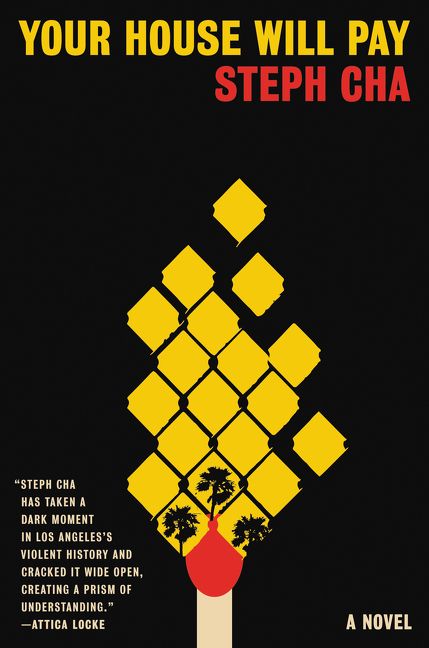
SARAH VEST – STAFF WRITER
Empathy is a word that can evoke images of heartfelt hugs and warm and fuzzy feelings. However, for Week Six’s Chautauqua Literary and Scientific Circle author of Your House Will Pay — Steph Cha — this is not the case.
For Sony Ton-Aime, the Michael I. Rudell Director of Literary Arts, Your House Will Pay was an instant fit for the theme “Building a Culture of Empathy.” He thinks that it provides an interesting perspective because it wasn’t just a “feel-good” book. It was a book of struggle.
Cha’s author discussion on “Building a Culture of Empathy” and her book Your House Will Pay, was originally broadcast April 8, and is available for streaming on the CHQ Assembly Video Platform.
The book moves back and forth between 1992 and the wake of a police shooting of a Black teenager in Los Angeles and 2019 after another shocking crime hits the city, causing two families to reckon with their past while navigating a city on the brink of violence. Cha describes her book as a present-day novel that has its roots in racial tensions and their perpetual and cyclical nature.
“Unlike those who think that empathy is a soft thing, this really heartwarming thing, I don’t think it is the case — and I don’t think Steph Cha, in her book, thinks that is the case,” Ton-Aime said. “It’s something that you have to work very hard on, and it’s messy. It’s filled with this frustration and headache and heartbreak.”
Cha said that she wanted to investigate the way that the same crimes are able to affect two families in very different ways, and the divide it creates between them. She wanted to try and answer the question of what that divide consists of and if it is possible to bridge it. She believes that empathy is part of the equation of understanding the divide.
“The ability to see people who are different from you, as people with full lives that are as important as yours, that’s what empathy breaks down to,” Cha said. “I do think this basic tenet that we’re supposed to care about other people — even if they’re somewhere else or even if you don’t know them — that’s fundamental to any attempt to not just to reach understanding between racial groups, but to even think about dismantling (any) kind of systemic underpinning of oppression. You need to believe that that’s something that’s worth doing.”
Before she wrote Your House Will Pay, Cha wrote the Juniper Song mystery series, books that she refers to as “private investigator novels.” To her, Your House Will Pay was a logical continuation of themes she was already thinking about in crime fiction, because she sees this genre as a useful tool for examining larger social issues.

“Where there’s crime, there’s usually kind of this collision of circumstances — collision of people. You look at the ways that people harm each other, then also, who hurts,” Cha said. “What happens as a result of that harm will generally tell you something about the world we live in.”
She said she has never been interested in defaulting to a story about police just because she writes about crime. She thinks there is an aspect of the genre that wants to find an orderly resolution in order to represent a soothing worldview and give the reader a sense of release at the end of the story. To her, this kind of ending is not particularly realistic.
“I’m interested in crime novels as a way of describing the world, rather than presenting an orderly version of it that I don’t believe in. I think that this idea of a frictionless functioning justice system is something that a lot of cop shows and crime novels do kind of assume, just for the smooth functioning of the fiction,” Cha said. “I’m interested in crime fiction’s ability to kind of show the whole mess of it, and to really root around in how the justice system actually works — who it works for and who it doesn’t work for.”




